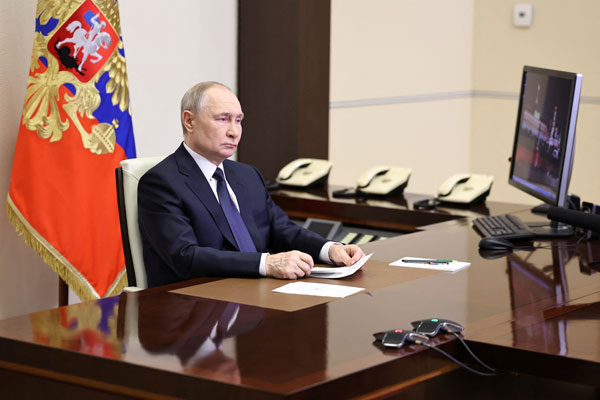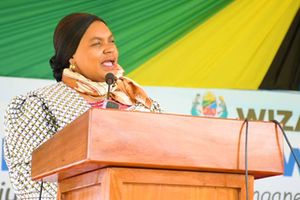‘The Kite Runner’ by Khaled Hosseini: There’s a way to be good again

What you need to know:
- The Kite Runner is a tragic story about love, inequality, friendship, family, and redemption. Set in Afghanistan before the war, during the Soviet invasion, and later under the Taliban regime, it follows Amir, a privileged boy living with his father — a wealthy businessman — and their servants, Ali and his son Hassan.
They say time heals everything. Give it time. Time will tell. But does it? Or does time ask for too much — silence, forgetting, pretending — before it gives anything back? In The Kite Runner, even after 26 years, Amir’s past follows him quietly until he has no choice but to face it.
The Kite Runner is a tragic story about love, inequality, friendship, family, and redemption. Set in Afghanistan before the war, during the Soviet invasion, and later under the Taliban regime, it follows Amir, a privileged boy living with his father — a wealthy businessman — and their servants, Ali and his son Hassan.
Ali and Hassan represent the deep-rooted inequalities driven by ethnic differences. The dynamic between the Pashtuns and the Hazaras is particularly striking. Pashtuns, like Amir and his father, see themselves as the “true” Afghans, while Hazaras, like Hassan and Ali, are treated as an inferior class. The intensity of this prejudice is surprising.
“I read that my people, the Pashtuns, had persecuted and oppressed the Hazaras. It said the Hazaras had tried to rise against the Pashtuns in the nineteenth century, but the Pashtuns had ‘quelled them with unspeakable violence,’” Amir narrates.
Amir and Hassan form a friendship that may feel one-sided. Hassan is loyal to Amir to a fault. He would deny himself anything if it meant making Amir’s life easier. This isn’t naive loyalty — it’s the result of a society that has shaped him to believe he is lesser. That’s precisely why Hassan didn't defend himself during the tragic incident in the winter of 1975 during the kite tournament. And Amir didn’t step in to help his “friend.”
They were raised side by side — born in the same compound, breastfed by the same woman after Hassan’s mother fled upon seeing his cleft lip. They took their first steps in the same backyard. Amir’s first word was “Baba.” Hassan’s first word was “Amir.”
“Looking back on it now, I think the foundation for what happened in the winter of 1975 — and all that followed — was already laid in those first words.”
Early in the novel, we see Amir constantly chasing his Baba’s attention—a man too distant to make his son feel seen or understood. Everything Amir does is to win his approval. He needed a father to help him understand the world. Instead, Baba’s silence made him fearful.
“Baba saw the world in black and white. And he got to decide what was black and what was white. You can’t love a person who lives that way without fearing him, too. Maybe even hating him a little.”
In 1981, Baba and Amir fled Kabul for Pakistan and later moved to America after the Soviet invasion. Life in America was nothing like what they had left behind. Baba, once a successful businessman living an upper-class life, found himself working at a gas station, dealing with a life-threatening diagnosis, and living in a place that barely felt fit for a servant compared to their old life.
Guilt, when left unspoken, eats away at you. It will chew you alive unless you sit with it — face to face — and talk through your differences.
For Amir, guilt followed him into his new life. Even after marrying Soraya — an Afghan woman who loved him and was approved by his ever-demanding father — guilt would visit him at night. It never left. That was until he received a call from Rahim Khan, his father’s best friend and the man he sometimes wished had been his father.
That call brought Amir back to Kabul — and back to the past he had tried to bury. There, he tries to make amends for what happened in 1975. But even then, he fails again and again. He fails Hassan — this time through Hassan’s son, Sohrab.
He tells Sohrab about bad people, but one could argue that Amir is one of them, too — always waiting for someone else to save him. “There are bad people in this world, and sometimes bad people stay bad. Sometimes, you have to stand up for yourself. What you did to that man is what I should have done to him all those years ago.”
The hypocrisy in Amir’s world is hard to ignore. Making it hard for someone to sympathise with him.
The Kite Runner is a beautifully written story. It's raw and revealing, even though it’s fiction. It makes you think differently about Afghanistan—about the people, the history, and the humanity behind the headlines. It breathes life into it, giving it humility and dignity. This book is for anyone who wants to understand a piece of history and how that history lingers in the lives of people who lived it.
Jane Shussa is passionate about books, coffee, nature, and travel. She serves as a Senior Digital Communications Officer for Twaweza East Africa.





